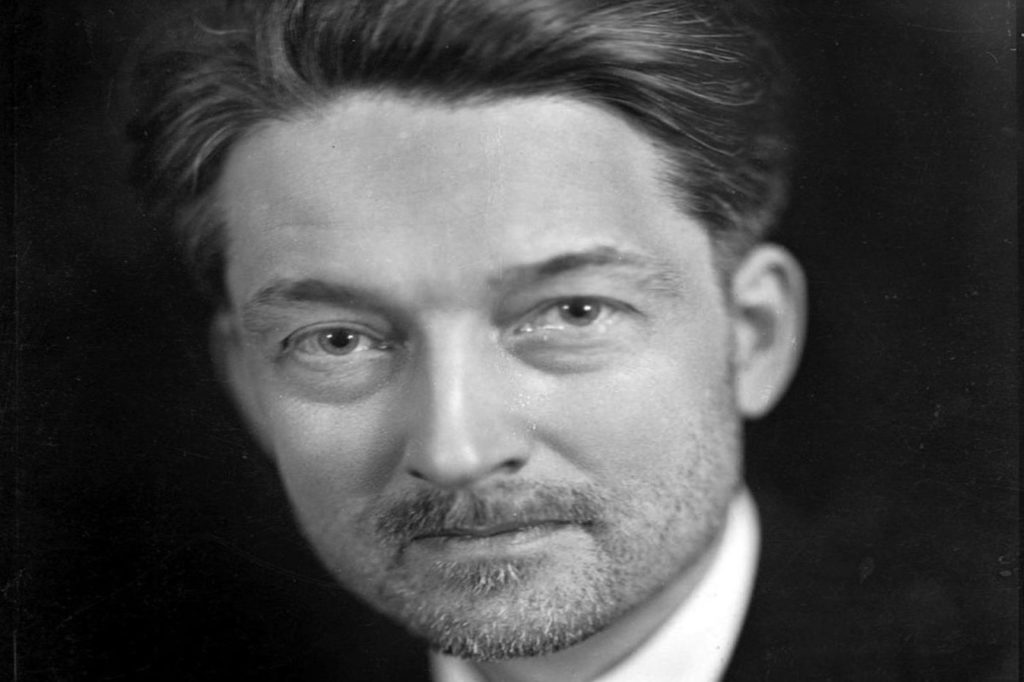Last week, Public Discourse Contributing Editor Nathaniel Peters argued in his long read that the thought of French Catholic philosopher Jacques Maritain continues to offer valuable insights for Christian politics in the twenty-first century, even within the context of the breakdown of institutional Christianity on which Maritain’s political project relied. According to Peters, Maritain reminds us that politics is about how to order our life together, and that we can order society toward the truth of Christianity, but that political power is no substitute for the spiritual power of the faith.
Here, three political philosophers respond to Peters’s perspective on Maritain: Daniel Burns, who serves as a Public Discourse Contributing Editor and Associate Professor of Politics at the University of Dallas; Steven McGuire, who is the Paul and Karen Levy Fellow in Campus Freedom at the American Council of Trustees and Alumni; and Justin Hawkins, who is a PhD candidate at Yale University in the departments of Religion and Political Science.
Daniel Burns:
My Public Discourse colleague Nathaniel Peters presents the most attractive portrait of Jacques Maritain’s thought that I have yet encountered. I also appreciate his Ratzingerian diagnosis of a weakness in Maritain: “implicit Christianity requires explicit Christianity in order to be maintained, perhaps more than Maritain acknowledged.” This weakness seems to me to be tied to a deeper confusion in Maritain.
Start your day with Public Discourse
Sign up and get our daily essays sent straight to your inbox.As Peters shows, Maritain says two things about how the “modern democratic view of freedom” has replaced the “sacral civilization of the past.” On the one hand, the Holy Roman Empire was “not bad in itself” but is merely “an out-of-date ideal.” On the other hand, by abandoning that premodern ideal, we have achieved “a historic moral advance” that has “clarified” and improved our understanding of the Gospel. Maritain seems to waffle on whether modern political “ideals” are, as such, morally superior to medieval ones.
Why is Maritain tempted to regard his own political philosophy as embodying “a historic moral advance” on (say) Thomas Aquinas’s? Apparently because of his modern insight that political-legal privileges should not be awarded based on religious faith. Where “believers and unbelievers” “share equally” in every aspect of civic life, the Church better secures her “superior dignity” by becoming freer from the contamination of “social power.”
But this argument, taken literally, would require us to secure the Church’s “superior dignity” by eliminating the political-legal privileges that Americans still do enjoy based on religious faith (i.e., primarily and in nearly all cases, Christian faith). These include tax exemptions, carve-outs from generally applicable laws, publicly funded chaplaincies, and the many Protestant equivalents of Ratzinger’s Polish crucifixes. Since Maritain does not seem to mind privileges of this type, I do not see how he can fault Aquinas for failing to grant non-Christians a radical civic “equality” that would require abolishing all such privileges.
It is always dangerous when the church of Christ exercises power in the earthly city. But since she will and must do so in any case, it can be even more dangerous when she pretends not to. Maritain’s distinction between power exercised “from the top down” by rulers, and power exercised “from the bottom up” by the people, obscures a crucial fact: in a republic, the people are the rulers, and where they are Christians, the Church does exercise “social power.”
Perhaps none of this would matter if the Christian understanding of the political common good were simply identical to that of any reasonable non-Christian. Maritain seems to imply as much by saying that “the civic creed of democracy . . . ‘is in no way a religious faith,’” or that an “implicitly” Christian political-legal culture can be nourished on the thin gruel of the Universal Declaration of Human Rights. But it turns out that implicit Christianity requires explicit Christianity in order to be maintained. The modern democracy that so excited Maritain was in fact a regime still shaped by the premodern Christian political-legal privileges that he thought he had proudly rejected. (Even our own regime still is, to a much lesser extent.)
The modern democracy that so excited Maritain was in fact a regime still shaped by the premodern Christian political-legal privileges that he thought he had proudly rejected.
Maritain appears to have shared some of the modern liberal Christian’s squeamishness about these privileges, even as his sounder political instincts led him to advocate new versions of them suitably adapted to modern conditions. It is not surprising that some aspects of his thought appear congenial to those today who would cheerlead Christianity’s unilateral disarmament in the face of a hostile secularism. Fortunately, as Ross Douthat’s recent lecture on Maritain proves, these aspects of Maritain’s thought can be safely ignored by those who take up his call to “promote laws inspired by Christian morality” in the specific and limited ways that we can. Taking up that call will indeed require us to “‘get to know and supervise [the modern state’s] complicated legal and administrative controls,’” as dangerous as that exercise of power may be. For the Church, as much as ever, still needs the force and protection of law in order to “smite her enemies”—even and precisely if, as Peters suggests and I fully agree, she ought to start with those enemies found among her own clergy.
Steven McGuire:
Nathaniel Peters opens his essay by referencing several wise remarks made by Joseph Ratzinger. In an exchange with him, Jürgen Habermas asked, “Does the free, secularized state exist on the basis of normative presuppositions that it itself cannot guarantee?” Put another way: can pure reason stand on its own? Remarkably (because it is Habermas), he answers no: “when reason reflects on its deepest foundations, it discovers that it owes its origin to something else.” He adds, “Without initially having any theological intention, the reason that becomes aware of its limitations thus transcends itself in the direction of something else.” The upshot is that reason cannot sustain itself, and, therefore, neither can a purely secular, rational society. We need religious, local, and historical traditions.
For his own part, Ratzinger of course believes similarly, referencing in his subtitle “the pre-political moral foundations of a free state.” Interestingly, he declines to appeal to the natural law in his exchange with Habermas because “this instrument has become blunt.” He does not deny the truth of the natural law tradition, but he acknowledges its lack of rhetorical force in our historical moment. He argues instead that we should embrace a process in which traditions of reason and revelation listen to and learn from one another: “Ultimately, the essential values and norms that are in some way known or sensed by all men will take on a new brightness in such a process, so that that which holds the world together can once again become an effective force in mankind.” This is how truth can be instantiated historically in modernity.
In The New Science of Politics, Eric Voegelin observes that every society is a “cosmion,” a “little world of meaning” that is “illuminated from within by its own self-interpretation.” If true, this means that every society understands itself as a historical representative of truth, grounded in “pre-political” “normative presuppositions” that point to “that which holds the world together.”
In the United States, these claims are represented, for example, in the Declaration of Independence. The recognition of natural rights in that document is part of a self-interpretation that includes a claim to exist in truth along with a recognition that we owe our “origin to something else,” in this case, to our “Creator.”
Using the language Peters adopts from Maritain, one could say our cosmion is analogical and, therefore, imperfect from the perspective of eternity. Every Christian should recognize this. From the perspective of history, however, it is exceptional. American Christians should recognize this too—even in these dark times. We find ourselves in a struggle between rival truths and rival interpretations of America, which is reasonable cause for moral and spiritual anxiety. As Peters and Maritain observe, truth is more important and powerful than coercion. If shared belief in our cosmion—ultimately a matter of persuasion—collapses, then all we will have left (at least for a time) is coercion.
Our society is imperfect from the perspective of eternity. Every Christian should recognize this. From the perspective of history, however, it is exceptional.
Christians today should most certainly participate in efforts to preserve our polity and ensure that our laws, policies, and political actions hew as closely to truth as possible in our time and context. This includes both persuading our fellow citizens and being willing to use legal coercion when appropriate. But we need to acknowledge the potential limitations of our time and seek ways to make the case for truth in terms that our fellow citizens might accept. We should also recognize that the society for which we are striving is unlikely to be much better than what we have had in America. To the extent we desire more we should seek it in the Church.
Justin Hawkins:
The morning after the conversation recounted in Plato’s Republic, the indefatigable interlocutors reconvened to continue their discussion. That second discussion is recounted in the Timaeus, whose political theory is typically, though unwarrantedly, overlooked in favor of its cosmology and metaphysics. Critias, having held his tongue all day yesterday, speaks up concerning a story of the ideal city he once heard: “you do not know that there formerly dwelt in your land the fairest and noblest race of men which ever lived, and that you and your whole city are descended from a small seed or remnant of them which survived.” That is to say, the ideal city is not only in speech, but also in the historic past among the ancestors of that august discussion group. This naturally presents the question: if the ideal city is historical, and if it was so ideal, why was it unsustainable? What happened to it to make it disappear? Critias has an answer: “there occurred violent earthquakes and floods, and in a single day and night of misfortune all your warlike men in a body sank into the earth, and the island of Atlantis in like manner disappeared in the depths of the sea.”
This brief but suggestive passage allows the political philosopher to maintain two opinions toward her own tradition’s historic greatness: first, that the good old days were really good; and second, that those good old days are now inaccessible to us, unrepeatable, the object of our admiration but not of our endeavor. We might look to that history as an inspiration, but never as a blueprint.
Something very much like this seems to be what my friend Nathaniel Peters is trying to teach us by drawing attention anew to Maritain’s political theology as an immunization against the nostalgia and idealism resurgent again in some small quarters of Catholic political theology. His essay calls our gaze away from the discussions of post-isms and anti-isms, and to “the concrete steps that citizens take in the present,” the particulars of life together, the habits of democratic citizenship in which political life is worked out day by day under conditions of imperfection.
This seems to me to be precisely the right instruction at the right moment. The strategy implicit here is one of alliance-building, rather than bridge-burning. It is a strategy of unglamorous but necessary organizing for one’s own view of the common good in its particular and concrete instantiations, while Christianly eschewing contempt for those who share our citizenship but not our view of the common good. Moving attention away from genealogies of modernity, nostalgic decline narratives, and brooding resentment allows political, intellectual, and rhetorical energy to be spent more properly on those objectives that are realizable, that conduce immediately to proximate forms of justice, and that build coalitions rather than foment mutual antagonism. While some Christians were relitigating the legacy of nominalism, the child allowance expired.














